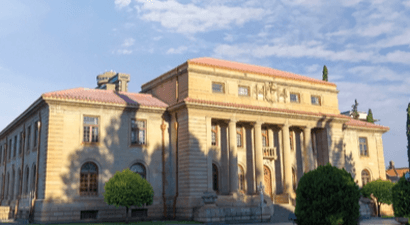Ex Parte Applications and Full Disclosure
Commissioner for the South African Revenue Services v V.E.M Bachir & Others deals with a preservation order in terms of Section 163 of the Tax Administration Act 28 of 2011 ("The Act"), whereby SARS is empowered to seek an order for the seizure, preservation and safe guarding of assets in order to prevent any such assets from being disposed of or removed, thereby frustrating the collection of the full amount of tax that is either due and payable or that the Commissioner, on reasonable grounds, is satisfied may be due or payable.
This case centres around the strict requirements of an ex parte application, which is an application brought by an applicant without notice to a respondent.
The facts of the case:
On 10 December 2014, SARS obtained an ex parte and in camera provisional preservation order in terms of Section 162 of the Act against the respondent. An interim order was issued by the High Court calling upon the respondents to show cause why the preservation order should not be made final on the return day of 11 February 2015. After the order was granted, SARS' attorneys of record failed to ensure that the order was served timeously on the respondents. Accordingly, SARS allowed the order to lapse by failing to appear in Court on the return date. Despite the order having lapsed on 11 February 2015, the third respondent was served with a copy of that order on 10 February 2015. In response to this order, the respondent's attorneys of record addressed a letter to SARS' attorneys informing them that they should not proceed by ex parte application in light the fact that the respondents were not dissipating their assets and had no intention to flee South Africa. They further requested that copies of any further proceedings against the respondents be served on their offices.
Despite having received the aforementioned letter, SARS launched another ex parte application to revive the lapsed interim order without serving the application on the respondent (or its attorneys of record). The revival order was granted on 18 March 2015. Once the interim order was revived, it was served on the respondents again, placing all the respondent's respective estates under preservation and in the control of the conservator of the property.
The respondents, in opposing the application, raised a number of criticisms on the merits of the application, as well as a presenting the preliminary point that the preservation order should not be confirmed on the basis that the applicant in its revival application breached its duty of good faith (which is an essential requirement of ex parte applications) and that the applicant failed to disclose material facts to the Court hearing the revival application. The material not disclosed included the fact that despite the order having been served on the respondents on 10 February 2015, the respondents did not flee South Africa as the applicant eluded in its founding affidavit; neither did the respondents attempt to dissipate any of the assets in order to frustrate the purpose of the order, and further, the respondents' attorneys of record had addressed a letter to the applicant's attorneys of record enquiring about the status of the matter and informing them about the respondents situation.
SARS, in its replying affidavit, denied that there were any grounds in which the respondents could lend credence to suggestion that the applicant did not act in good faith when it obtained the order reviving the interim order. According to SARS, there is no requirement that any further information on the facts should be placed before Court at the time of bringing the revival application. SARS argued that in any event, at the time of the ex parte application, it was able to show that the provisional preservation order was required to secure the collection of tax.
The Court’s findings:
The Court considered a revival application that was obtained on ex parte and in camera and found that, despite the fact that it was a revival application, it was in fact an ex parte application and ought to be treated as such.
The Court considered the fact that at the time the revival application was launched, SARS was aware that the respondents were represented and had requested, in writing, through their attorneys of record, that they be served copies of any further proceedings that SARS may institute against them. SARS failed to serve the revival application on the respondents and failed to disclose the letter to the Court, whilst it already knew, having been informed in the said letter of 20 February 2015, that the respondents were not dissipating its assets and had no intention to flee South Africa.
The Court found that the revival application should, as such, not be handled normally, but must instead comply with all the requirements of an ex parte application. One such requirement is full disclosure.
The Court reiterated the position that an ex parte (to seek an order in the absence of notice to the respondent party) is a serious departure from the ordinary principles applicable to civil proceedings. As per normal court practice, an ex parte procedure should be invoked only where there is good cause or reason for the procedure, such as when the giving of notice would defeat the very object for which the order is sought. It is trite that, in an ex parte application, the applicant bears a duty of utmost good faith in placing before the Court all the relevant material facts that might influence the Court in coming to a decision. The only facts that are material and, which are within the applicant's knowledge should be disclosed. The Court echoed previous cases regarding ex parte applications and confirmed that good faith is an essential condition in ex parte applications. If any material facts are not disclosed, whether they be fully suppressed or negligently omitted, the Court may on that ground alone, dismiss and ex parte application.
The Court held that, if the letter had been disclosed to the court that heard the revival application, that court would most probably have been disinclined to grant the order. The Court accordingly held that if material facts are not disclosed in an ex parte application or the facts are deliberately misrepresented to the Court, the order will be erroneously granted.
SARS' application was accordingly dismissed with costs.
What is important for taxpayers to note, is that although the courts acknowledge that the State is obliged to and entitled to collect taxes, it must do so lawfully and, in the context of a preservation order sought ex parte, it must be done with circumspection keeping in mind the utmost good faith required.






